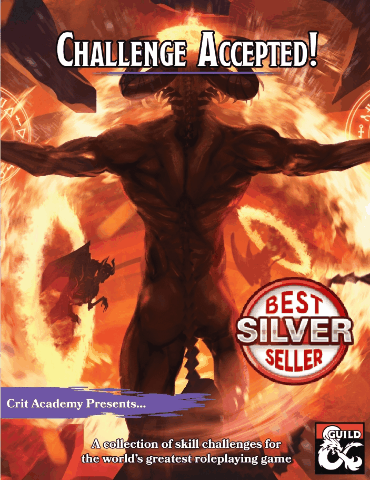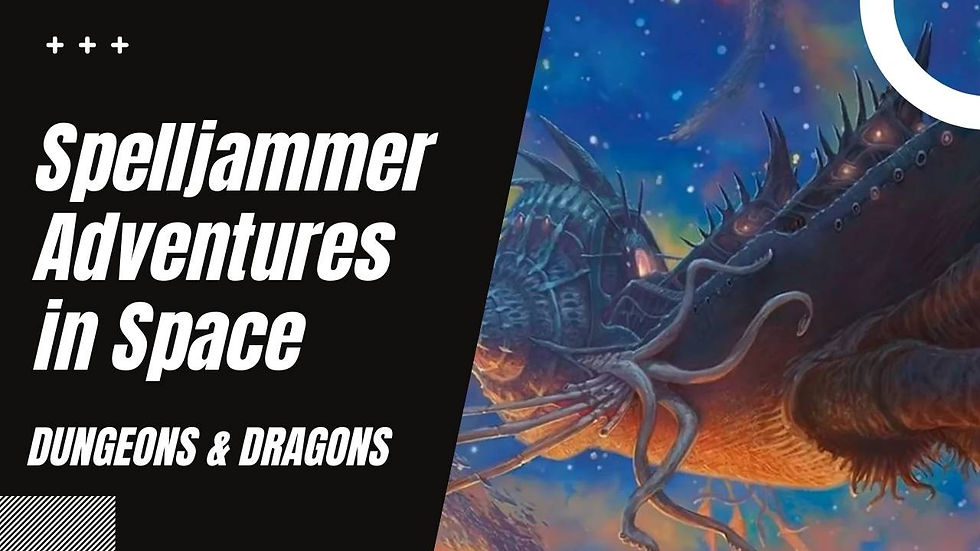Class Analysis: Monk
- Justin Handlin

- Jan 10, 2020
- 5 min read

Crit Academy breaks down the features of the Monk in the Dungeon and Dragons Player Handbook. We touch on the mechanics and how they function, as well how we would reflavor them to give them a fresh and unique feel.
The monk is an absolute blast to play. The unarmed strike form of combat is intoxicating to those who love to get creative with their combat descriptions. Most players when running a monk focus on the punches and kicks that they can do. But, its "unarmed" combat, not fists and kicks. This opens up the combat flavor to a whole new level. Playing a Tiefling? Slap the enemy around with a spinning tail swipe, or bash their heads in with yours, I've even seen a halfling run full force jump into the air and do a street fighter Blanca style spinning ball smash, the creativity is endless.
Unearthed Tips and Tricks: New and reusable D&D content for you to bring with you on your next adventure.
Character Concept:
The Oblivious Observant
The adventurers are walking through the dreaded Tomb of Horrors. They slowly make
their way from room to room being careful not to fall victim to one of its legendary deathtraps. While the rest of the party is investigating a big, green, demonic face carved into the wall, the bard decides to take a breather by leaning up against a wall. Suddenly, the wall swivels open and leads to a new passageway! A few moments later, a trap is triggered and poison darts start firing from the walls themselves. The bard, however, doesn’t notice because he just bent down to wipe a scuff mark off of his shoe, and the darts harmlessly fly overhead.
The Oblivious Observant is a character who, despite his stats indicating that he may be very
good at Perception, Investigation, History or so on, is completely oblivious and often notices
clues or solves problems through sheer dumb luck. When you succeed on a roll (be it a skill
check, saving throw, attack roll, whatever) you can reflavor the result so that instead of doing
something on purpose, you do it because you were distracted by something you saw. voiding a fireball might involve you tripping over a rock as the fire passes over you, or maybe you found out how to deactivate a trap because you were picking your nose and wiped it off on the switch that controlled the hall of spinning blades.
If your character has a high stat modifier on your character sheet, that doesn’t mean they
have to be skilled in-game. A success on a roll is a success, so work with your DM to find fun
ways to play out those successes. You might even want to hide some details of your character from the rest of the players. Imagine if, halfway through a year-long campaign, you find out that it was all planned out by the player ahead of time!
Monster Variant:
The Crowd Pleaser
Gladiatorial combat is one of the most common forms of entertainment around. For some, it’s not all about the blood and gore. For some, it’s about the performance, the cheer of the crowd, the chant of the fans, and the glory that comes with success.
Origin: Gladiator
New Feature:
Showboat. When the crowd pleaser hits with a melee attack, it can forgo an attack to make a DC 15 Charisma (Performance) check, on a success, the crowd pleaser can spend a number of hit dice up to a maximum of its CR to regain hit points.
Encounter Concept:
The Gladiator Arena
You’ve been locked up in a cell for the last few days, and you’re certain that your death
is coming any day now. Your dread turns momentarily to relief as you’re led out of
your cell into fresh air and sunlight, but then suddenly the roar of an immense crowd
surrounding you on all sides turns your relief back to dread. You’re tossed a rusty sword as
a gate closes behind you, and you see your opponents: half a dozen other prisoners that are
willing to kill in exchange for their freedom. The cheering crowd gets louder, and you wonder what it would take to make them chant your name.
This is an environmental encounter that can contain any variety of opponents you like.
Instead of fighting in a dungeon or a forest or other typical locale, you’re a gladiator (or
group of gladiators) in an arena, fighting for the adoration of a captive audience. Every time
a player describes their action in combat, the DM can have the audience react. If they react
favorably, then the player gets benefits. If a player simply says, “I attack the enemy
in front of me,” then the crowd might shout their distaste or throw rotten vegetables at them. An answer like: “I hold my rusty sword behind me, so my opponent can’t see it. Then, I get up close and I feint right, but duck left, catching my boot on his to make him trip. As he stumbles, I bring the sword out from behind and drive it straight toward the chinks of his armor” could still be a standard attack (with an elaborate description), but the DM can grant the player an Inspiration die (ranging from a d4 to a d10, depending on how impressive the description was) which they can use to add to any single d20 roll during the rest of the encounter.
After all, having the crowd chanting your name can give one hell of a rush.
Magic Item
Elixir of Love
Potion, Rare
After drinking this elixir, the drinker must make a DC 11 Wisdom saving throw or fall under its
spell for 1d4 hours. While affected by the elixir, the drinker is treated as if Charmed (as per the Charm Person spell) by the first person it sees after imbibing. The Charm effect grows more and more intense as the effect nears the end of its duration. Various strengths of the Elixir may exist. some may have higher save DCs or longer durations. Some tales even tell of a witch who brewed an elixir of love so potent that it was said to make the drinker fall in love
permanently.
DM Tip:
Tax Character Resources
Do you ever feel like your party has way too easy of a time with the final boss of a dungeon?
Do you constantly see the players using their highest-level spells during almost every battle,
especially during the climactic encounter? Do you have trouble bringing down players because they always have too many hit points and spell slots?
Chances are, you’re not taxing their resources enough. Spell slots and hit points are limited
resources, and encounters (both combat and non-combat) are meant to drain these resources. If the players are at full HP and have all of their highest-level spells when they reach the final boss, then it’s no mystery if the fight is over too quickly!
One of the easiest ways to tax resources is to impose a time limit on the adventure. If there’s
nothing stopping the players from going back to town and resting, then they’re going to do exactly that. If there’s no reason they can’t spend two weeks clearing out the dungeon, then be glad they’re not spending three! However, if an evil necromancer’s ritual must be stopped before midnight, then the players will be forced to go through the entire dungeon in one go. They won’t be able to constantly replenish their resources, and the final fight is bound to be a climactic one.
Another way to tax resources is to force players to spend them in unusual ways. A stressful or
tiring slog through a desert or swamp might sap players’ Hit Dice, for example, and a magical lock might require a spellcaster to harmlessly discharge a certain number of spell slots into it to pass (and the lock resets if they leave and come back)! Have some fun coming up with interesting ways to turn renewable resources into keys to make your dungeons more interesting and meaningful!
We hope you enjoyed your experience here on Crit Academy, if you did, please consider sharing our show and leaving a review here on itunes.
Support Us:
Subscribe to our Blog and be entered to win phat lootz every week.
Visit our website at www.critacademy.com or become a patron donor and get additional phat loot!















Comments